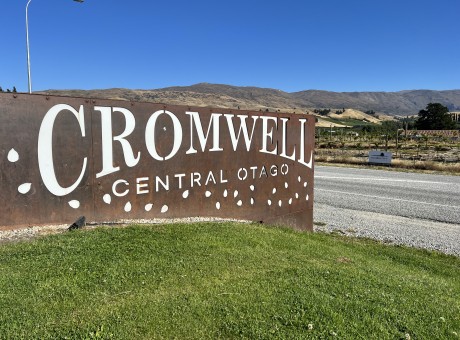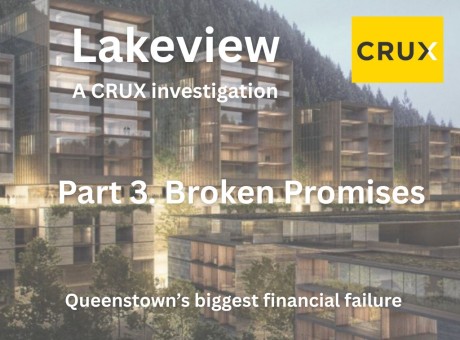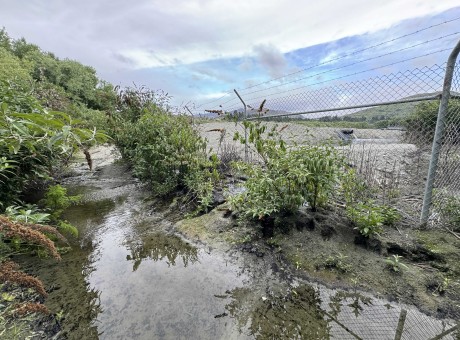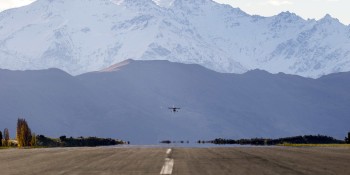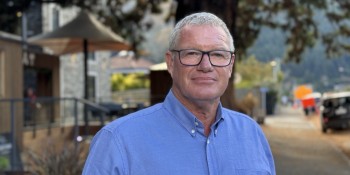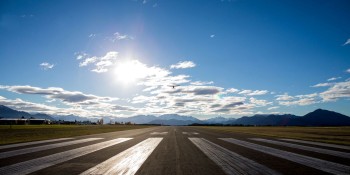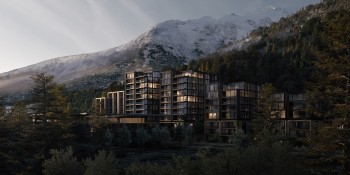ORC: Who will best represent you?
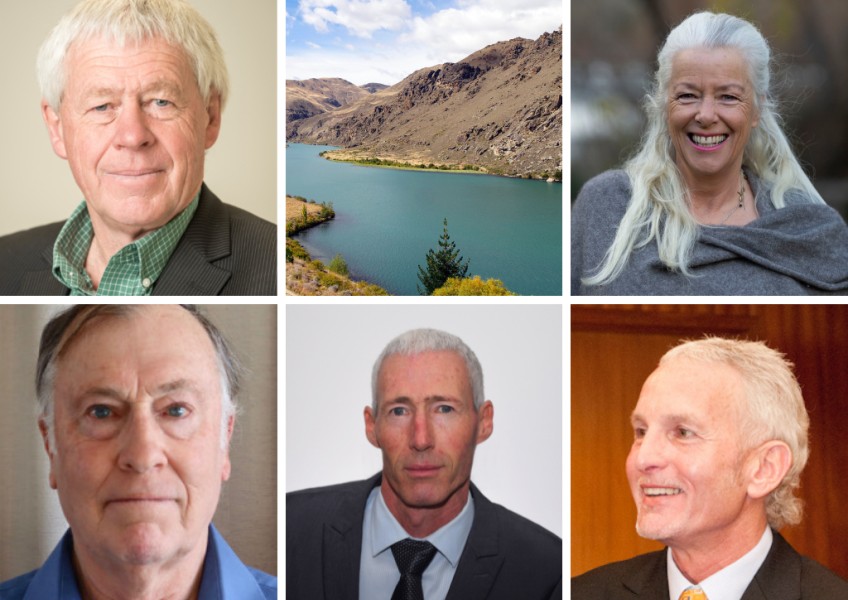
Who says local body politics is boring? Since the last election, the Otago Regional Council has seen mediators brought in to help sort the relationship between elected members and staff, the chief executive abruptly leave, and a councillor resign after being ousted as chair. Residents of the Central Otago and Queenstown Lakes Districts get three councillors in their corner, representing the Dunstan constituency. Who do you think can keep the council on task?
Mike Barker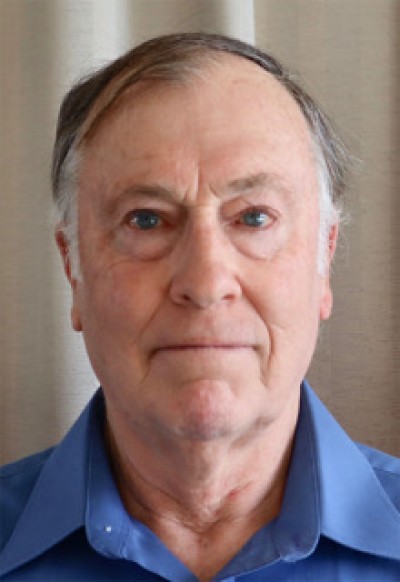
Ten years from now, how would you like to see this region having responded to climate change?
Fewer inbound tourist flights than we had before the Covid pandemic.
The irrigation industry will have developed greater capacity for water storage and less dependence on extraction from rivers such as the Manuherekia.
Increased reforestation but of native tree species, not Pinus radiata.
Greater use of (subsidised) solar panels and battery storage systems for private homes in Central Otago and power companies offering more competitive power buy back power options.
Relationship dynamics have arguably gotten in the way of the work of the ORC since the last local body elections. A cohesive approach is needed – how will you work collaboratively? Also, what might make you put your foot down?
Hopefully a change in council membership will resolve some of the ongoing issues, especially if the councillors have fewer conflicts of interest between farming and environmental management.
I would be very disappointed if issues such as implementation of the new National Policy Statement on Fresh Water Management and a decision on how much water to leave in the Manuherekia are not quickly resolved.
Public transport – for swathes of the constituency, this question seems irrelevant. But what can we do better? Should the ORC hand over its public transport responsibilities to local councils?
We have no public transport where I live in Wanaka. Yes I think it makes much more sense for district councils to administer public transport. If towns and cities were looking to develop new bus stations, airports or train stations district or city councils would need to have a fundamental involvement, so why not pass on total responsibility to these councils and leave the ORC to manage the environment?
Is the ORC too Dunedin-centric? What can and will you do to ensure the landscapes and communities of the Dunstan constituency are prioritised and heard?
I do believe that the ORC focusses more on Dunedin than other population centres. If the ORC was to base some staff, particularly in the area of environmental management, within the Dunstan constituency this would ensure closer involvement with the community.
How will you work to manage the needs of communities to grow and thrive with the need to protect waterways? Has the ORC so far favoured the needs of the farming community over other groups? How can greater balance be achieved?
As a retired marine scientist and current Fish and Game councillor, I have a broad understanding of both freshwater and marine ecosystems of our region and a deep concern for the ongoing health of our lakes and rivers. As an experienced scientist I will be able to contribute to thoughtful analysis and decision making on future environmental planning for our region.
In regard to the second point, it seems clear that the ORC have favoured the needs of the farming community over the necessity of maintaining appropriate water flows in streams and rivers. Delaying a decision on setting minimum flows for the Manuherekia river, supposedly to get more scientific input before a decision is made, is evidence of this. Greater balance can be achieved by the election of councillors with a different perspective on environmental management.
The job of councillors is governance - What’s your understanding of that in the context of the ORC and what specific skills/attributes/experiences do you bring to the table to help achieve good governance?
Governance requires the ORC to set the policies and direction within which it operate, in order to comply with its obligation to manage the natural and physical resources of the region. It also must ensure responsible and prudent financial management of the organisation to ensure the best use of rates. As a current Fish and Game Councillor and previous senior academic at the University of Otago (six years as head of the Marine Science Department) I believe I have a suitable background to contribute to good council governance.
Alexa Forbes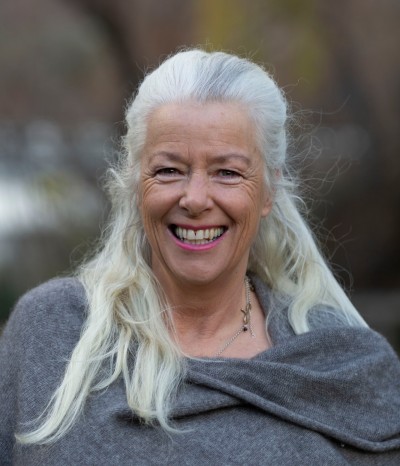
Ten years from now, how would you like to see this region having responded to climate change?
Responding to climate change will be an ever increasing part of our lives in 10 years time. We will be working to reduce our climate impacts to minimise future harm while also dealing with new climate related hazards. Improved building, water and waste infrastructure will withstand increasing incidences of hazards such as flooding and high winds. Greatly improved processes will ensure our waterways are kept clean and healthy throughout flood or other events. Strengthened social infrastructure will ensure communities are resilient and responsive to the changing climate. People will understand hazards and know how to respond to them.
Relationship dynamics have arguably gotten in the way of the work of the ORC since the last local body elections. A cohesive approach is needed – how will you work collaboratively? Also, what might make you put your foot down?
Otago is a diverse region with many different people of different backgrounds and values. We put 12 of them in a room and expect them to work together - it is always going to be problematic. A commitment to listening to each other and putting aside agenda to concentrate on the principles and values articulated in our own ORC documents is how to achieve cohesion. My approach to working collaboratively is to see issues from other perspectives. I try to come from a position of integrity and honesty and, in my better moments, make sure I uphold the mana of the person I disagree with.
Public transport – for swathes of the constituency, this question seems irrelevant. But what can we do better? Should the ORC hand over its public transport responsibilities to local councils?
At $33m cost this is one third of our spend and it has to be a whole lot better. Public Transport must be 1. Reliable, 2. Frequent, 3.Convenient and 4. Inexpensive to the end user. We are not achieving number 1 at this point. We have failed to find a solution to the driver shortage and this has brought this system to its knees. We are tackling this, but it’s not a fast process.
Responsibility should not be handed. I think the answer is a different governance system which creates a standing committee of ORC specifically for Public Transport which includes the chairs of Infrastructure from both QLDC and DCC. This would bring all three councils together – at governance and staff levels - and allow space for Clutha and CODC to come in as the system expands. Currently there is no standing committee dedicated to Public Transport. It is not governed by the Regional Transport Committee, reports come to Implementation and Data and Information committees. This is problematic because no one has direct responsibility for championing the system.
Is the ORC too Dunedin-centric? What can and will you do to ensure the landscapes and communities of the Dunstan constituency are prioritised and heard?
Yes. We have made progress on this over the past triennium with more staff in the regions and more focus on headwaters. As the only ORC councillor living in the headwaters I work to bring this perspective to Dunedin and am supported by my Dunstan colleagues in this. I like to use the Te Uta te Tai (mountains to the sea) framework to ensure a holistic whole-of-catchment approach. On a practical level, when concerns are raised on specific issues, I request staff attend meetings so that people are heard. An example is a debrief on recent flooding in Kingston where our CDEM people came along and began a process of emergency response for Kingston.
How will you work to manage the needs of communities to grow and thrive with the need to protect waterways? Has the ORC so far favoured the needs of the farming community over other groups? How can greater balance be achieved?
We work within Te Mana o te Wai which means health of the water comes first and foremost. Communities will thrive if the environment is healthy. We cannot trade-off water health for financial gain.
The history of regional councils and their focus on environment has put them mostly in the rural space. This is different from favouring the farming community. There is certainly a rural/urban tension in New Zealand at least partially caused by rising urban awareness of the water degradation that has happened alongside increasing farming intensity over the past 40 years. Our work is about ensuring the environment and its resources are restored, maintained and enhanced so they benefit the whole region into the future.
It’s not a balance. It’s about prioritising the environment, understanding our connection to it and simultaneously undoing the degradation of the past and rebuilding environmental health. We mustn’t polarise into an urban rural divide, but realise that ORC governance is for the health of the environment of the entire region, for the benefit of all that live here.
The job of councillors is governance - What’s your understanding of that in the context of the ORC and what specific skills/attributes/experiences do you bring to the table to help achieve good governance?
Right now we have to deliver a Land and Water Plan and a Regional Policy Statement. We need stand between the government and our communities as we find ways to implement the National Policy Statements and National Environment Standards, feeding back to both and making sure our communities are heard as they design their own solutions and identify issues with the edicts. Specific attributes: understanding and qualifications in kaupapa sustainability, experience at both local and regional council level, life experience as a resident of Queenstown for 38 years, governance ability and experience as a director of several organisations, commitment to Te Tiriti and mana whenua, personal integrity and honesty without conflicts.
Gary Kelliher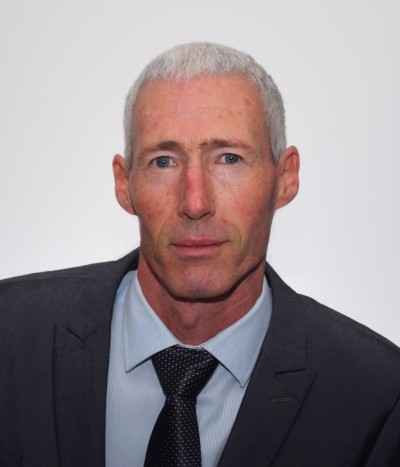
Ten years from now, how would you like to see this region having responded to climate change?
Decisions based on science and realistic aspirations as factoring for climate change will have some major cost implications to ratepayers. But it cannot be ignored, and some hard decisions may be necessary for low lying areas with known issues.
Relationship dynamics have arguably gotten in the way of the work of the ORC since the last local body elections. A cohesive approach is needed – how will you work collaboratively? Also, what might make you put your foot down?
I always aim to be collaborative, but with bottom lines when it comes to representing my community. I am not an expert in anything, I always want reliable science and other available decision-making factual detail so that decisions are robust, and removed of emotion. There has been a clear division at the ORC table for this triennium, but I always look to work with elected colleagues to understand their position, and help them understand mine. My foot goes firmly down if I think a direction is being taken that has agenda other than being factual, or in the best interests of the community.
Public transport – for swathes of the constituency, this question seems irrelevant. But what can we do better? Should the ORC hand over its public transport responsibilities to local councils?
Public Transport is a hot topic now due to covid and availability of drivers, which effect routes, which effects patronage. And yet ratepayers have been asked to pay more in their rates for the service. It’s a vicious circle, but I hope its very short term, and we get the drivers we need to have all bus routes functioning. I am open to exploring a well thought out proposal for transfer of bus services to local councils, but I don’t think the suggestions currently are that well thought out. In the first instance we definitely need better collaboration with local councils and I think ORC has been willing for this (certainly councillors) but its appearing to me to be only of late that the local councils have become vocal on this.
Is the ORC too Dunedin-centric? What can and will you do to ensure the landscapes and communities of the Dunstan constituency are prioritised and heard?
The ORC has been very Dunedin-centric, although over the past year there are greater numbers of staff based in the regions. I want to see more staff located in the regional offices where their roles are associated, rather than driving out of Dunedin every day. Some of our governance meetings have been held around the region, and this needs to continue, and they will become better supported by the public. As councillors we need to be vocal and push for priority for our constituency, and I will continue to do this if I am re-elected.
How will you work to manage the needs of communities to grow and thrive with the need to protect waterways? Has the ORC so far favoured the needs of the farming community over other groups? How can greater balance be achieved?
To the contrary I believe the ORC has been the polar opposite. The farming community are totally at odds with the ORC, they feel very let down and ignored, and efforts made by the farming sector to improve the environment, and their own operations are very rarely acknowledged, whereas any issues or bad practice is highlighted beyond its extent. Also new rules are often considered to be so far beyond reality or devoid of understanding of the actual situation on the ground, many are left just shaking their heads in disbelief. At community meetings farmers are often now the first to leave, and when I question them why, they say they are ignored, and Council only listens to enviro groups and iwi. This has to change.
The job of councillors is governance - What’s your understanding of that in the context of the ORC and what specific skills/attributes/experiences do you bring to the table to help achieve good governance?
Governance is about policy, strategic direction, and employs the chief executive to manage the organisation. I have governance training/background and affiliations. I have chaired and deputy chaired community groups and organisations, and have a good understanding of the difference between governance and management. Councillors should not be involved in management, but they should question and challenge to ensure management is following the direction governance has set.
Michael Laws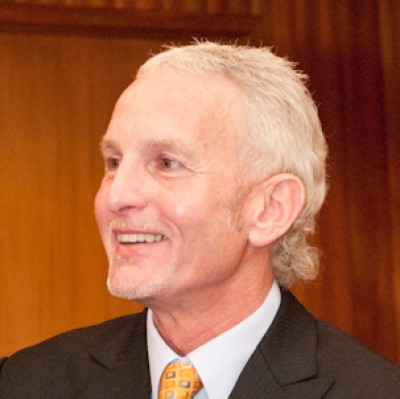
Ten years from now, how would you like to see this region having responded to climate change?
With intelligence - awareness of the latest science, identification of the policies that will work (and those that will not), and an understanding that any actions we take must be co-ordinated nationally and relevant to our region.
Relationship dynamics have arguably gotten in the way of the work of the ORC since the last local body elections. A cohesive approach is needed – how will you work collaboratively? Also, what might make you put your foot down?
There's a clear path - a) elected members set policy and hold the organisation to account for its implementation: b) robust debate must be encouraged and staff advice tested; c) after that debate then democracy holds sway and decisions are implemented. The acting CE has made a dramatic difference in improving the ORC's organisation in just months, so I'm quite optimistic as to future inter-relationships and communication with our diverse communities.
Public transport – for swathes of the constituency, this question seems irrelevant. But what can we do better? Should the ORC hand over its public transport responsibilities to local councils?
Only Dunedin and Queenstown have public transport, funded by their resident ratepayers. Like or not, the private car will remain the predominant mode of transport in Central/Lakes until well into the foreseeable future. Our geography - and relatively small ratepayer base - determines that. We have yet to test the financial appetite of folk for expanding existing services.
Is the ORC too Dunedin-centric? What can and will you do to ensure the landscapes and communities of the Dunstan constituency are prioritised and heard?
It has been my number one bug-bear with the ORC that it has confined all its senior staff and policy-makers so far away (in Dunedin) that they can't possibly gauge our community's mood, insights and knowledge prior to creating plans & policy. The last chief executive stymied the decentralisation of council to the regions but I will continue to champion such over the coming term, if re-elected. Seventy percent of the ORC's work is done in the Dunstan region.
How will you work to manage the needs of communities to grow and thrive with the need to protect waterways? Has the ORC so far favoured the needs of the farming community over other groups? How can greater balance be achieved?
The ORC hasn't championed any sector of the community over any other. It has a legal responsibility to implement the National Standards - whether of freshwater or biodiversity - and to ensure that previously non-existent science underpins those decisions. Delighted that my initiative of an Otago Lakes Strategy - to protect, preserve and enhance our lakes - has received ORC backing and funding.
The job of councillors is governance - What’s your understanding of that in the context of the ORC and what specific skills/attributes/experiences do you bring to the table to help achieve good governance?
'Governance' needs to be clearly defined. It is the creation of environmental policies, plans and programmes, first and foremost, and then the monitoring of those same plans, policies & programmes in their implementation. It is also ensuring value for money for the ratepayer dollar and that the organisation is meeting ethical, communication, research and scientific standards. That's been my job these past 3 years and I have not flinched from holding the ORC to account for any non-performance nor error (eg Clutha River dumping, monitoring of TA wastewater plants). I've been an MP, Mayor, DHB board member and now regional councillor. I'm aware of the requirements, and sometimes the strength, necessary to test and sometimes contest internal organisational advice. But not to do so is to deny the constituents and communities that you are elected to serve.
Tony Lepper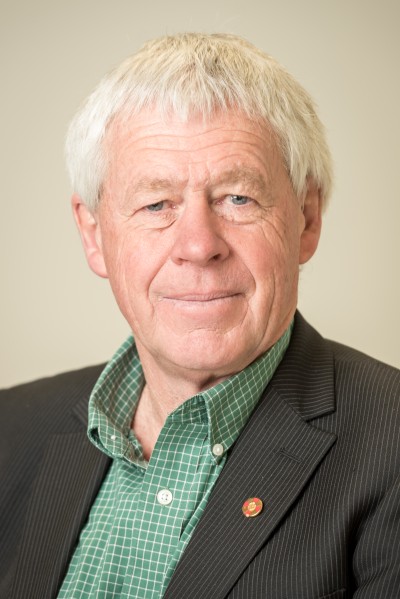
Ten years from now, how would you like to see this region having responded to climate change?
Climate Change is bigger than just one council. Everyone must play their part in making a difference. As a leader in our community, it is essential that everything that the ORC does has a climate change lens focused on it. This will include all their plans and the way that they go about shaping a better future for the generations to come. A good start would include decentralising the work force and using remote working techniques. Greater support for the voluntary biodiversity efforts being made through out the region would also be a good outcome.
Relationship dynamics have arguably gotten in the way of the work of the ORC since the last local body elections. A cohesive approach is needed – how will you work collaboratively? Also, what might make you put your foot down?
The public is fed up with the continuing fighting between the factions within the council and the lack of trust between councillors and staff. I am standing because I believe that I have the experience and skills that could help create a more cohesive council. I have a history of working closely with senior staff and allowing them to use the skills they bring to the job. Having worked with a variety of interest groups in conservation I have a proven track record of consensus decision making. I have a reputation for being candid so it will not be difficult to understand where I am coming from on an issue.
Public transport – for swathes of the constituency, this question seems irrelevant. But what can we do better? Should the ORC hand over its public transport responsibilities to local councils?
Having lived and worked in Earnscleugh for 40 years public transport is not my speciality. It does seem to me that it is slightly crazy that the ORC is entrusted to deliver public transport solutions in the likes of Queenstown and Wanaka when only one elected member is from there. As an outsider looking in, I would have thought the district council would have a far better understanding of what its community needed.
Is the ORC too Dunedin-centric? What can and will you do to ensure the landscapes and communities of the Dunstan constituency are prioritised and heard?
On paper it would appear that Dunedin interests can dominate outcomes. My experience in local government is that numbers do not always dominate as expected. The skill and experience of local representatives is always important as they need to be able to shape the debate by clearly articulating the problems and offering up solutions. Having lived and worked in Central Otago my fellow councillors will not “die wondering” what my thoughts are on what is important to those of us who live here.
How will you work to manage the needs of communities to grow and thrive with the need to protect waterways? Has the ORC so far favoured the needs of the farming community over other groups? How can greater balance be achieved?
I have managed the Earnscleugh Irrigation Company since the Earnscleugh community purchased it off the Crown in 1989. I believe that this community scheme is an exemplar of what can be achieved when everyone works together to achieve a combined vision. While some of the rules, negotiations and problems have turned my hair grey it has all been worth it. I will bring that knowledge and experience to the council. Unlike other parts of New Zealand irrigation in Central is not a nice to have, it is a necessity. There is a balance that can be struck, and it is my goal to find that balance.
The job of councillors is governance - What’s your understanding of that in the context of the ORC and what specific skills/attributes/experiences do you bring to the table to help achieve good governance?
Governance is my speciality. In 2020 I was made an Officer of the New Zealand Order of Merit for my governance work. I am an experienced Chair. I am in my 6th year as Chair of Bowls New Zealand. I was the Chair of Sport Otago for seven years. I have had a number of Ministerial appointments; I am just finishing my first term on the Central Lakes Trust, and I am Deputy Chair of the Centre for Space Science Trust. I am known for my consensus decision making, my ability to bring the best out in others and my desire to let staff get on and do the job we pay them to do. There are ways of ensuring that the right checks and balances are in place to monitor this work.






